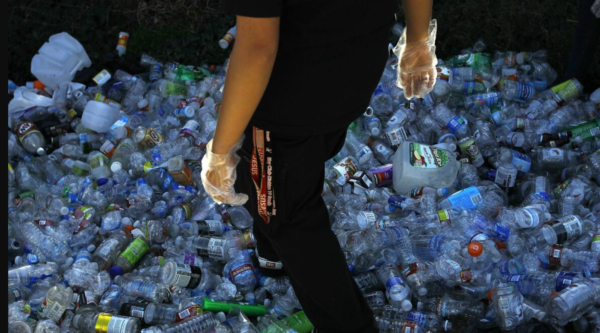 Dr Seema Javed
Dr Seema Javed
Diplomats from 184 countries, along with representatives from the plastics industry and advocacy groups, began gathering in Geneva on August 5 in a renewed push to finalize an international, legally binding treaty to curb plastic pollution. However, nations remain divided over what should — and should not — be included in the agreement.
A central issue of contention is whether countries should commit to targets for reducing the production of virgin plastic polymers (made from raw materials derived from petroleum). While many nations are pushing for an ambitious treaty with legally binding targets, including cuts to plastic production, others — particularly those with strong fossil fuel and petrochemical industries — favor voluntary measures and a focus on recycling. The main point of disagreement is whether the treaty should address plastic production levels alongside consumption and recycling.
A coalition of nearly 100 countries — including the EU, Canada, Australia, and many African, Latin American, and Pacific Island nations — supports stopping the rise in plastic production. They have pledged their backing for provisions aimed at reducing virgin plastic production to “sustainable levels.”

Petrostates such as Saudi Arabia, Russia, and Iran, which view plastic manufacturing as vital to their fossil fuel industries, insist that recycling and “voluntary” measures are the only viable solutions. The United States is also pushing back against measures to curb plastic production, as key talks this week failed to produce a breakthrough.
The key divide remains whether the new treaty should include a target to limit plastic production or simply focus on recycling and waste management.
Currently, around 11 million metric tons of plastic enter the ocean each year. It is estimated that by 2050, there will be more plastic in the ocean than fish. According to the U.S. National Oceanic and Atmospheric Administration (NOAA), it takes the ocean about 450 years to break down most plastic. Fishing lines are the worst offenders, taking up to 600 years to biodegrade, while disposable diapers and plastic bottles take around 450 years. Plastic shopping bags may take up to 20 years to break down, styrofoam takeaway coffee cups about 50 years, and cigarette butts around 10 years.
 Jubilee Post News & Views
Jubilee Post News & Views





